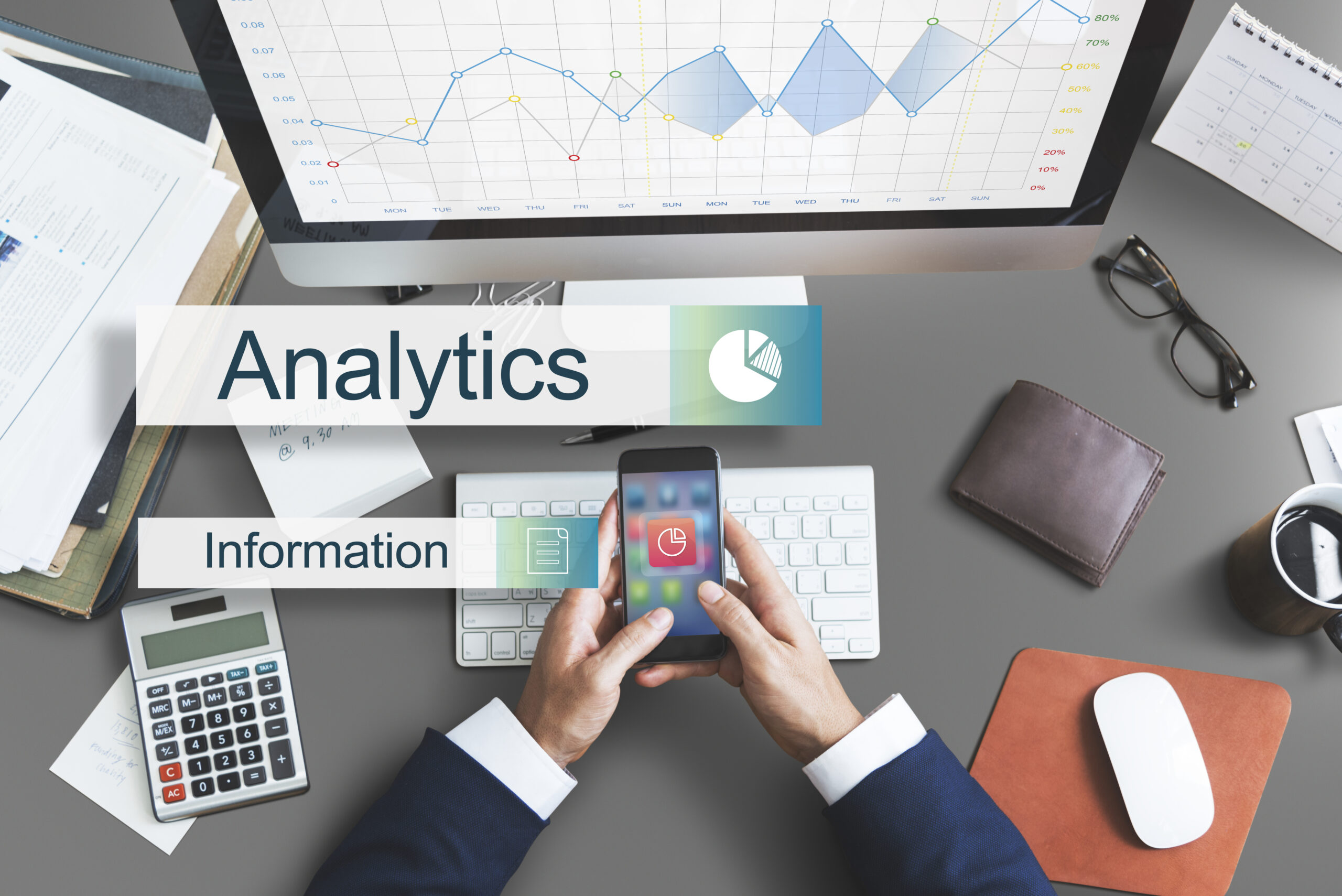Table of Contents
ToggleHow to Use Best Social Media Analytics
How To Use Best Social Media Analytics
How to Use Best Social Media Analytics In Today Digital Age Social Media Has Become An Integral Part Of Marketing Strategies For Businesses Of All Sizes. However Merely Having A Presence On Social Media Platforms Is Not Enough. To Make The Most Of Your Social Media Efforts And Drive Meaningful Results It Is Essential To Leverage Social Media Analytics Effectively.
1. Introduction To Social Media Analytics
- Understanding The Role Of Analytics In Social Media Marketing
- The Benefits Of Data Driven Decision- Making
2. Choosing The Right Social Media Analytics Tools
- Overview Of Popular Social Media Analytics Tools
- Factors To Consider When Selecting Tools For Your Business
3. Key Metrics To Track
- Engagement Metrics: Likes, Comments, Shares And Reactions
- Reach And Impressions: Gauging Your Content’s Visibility
- Click Through Rate And Conversion Rate Measuring User Actions
- Follower Growth And Demographics: Understanding Your Audience
- Referral Traffic: Tracking Social Media Driven Website Visits
4. Setting Up Your Social Media Analytics
- Linking Social Media Accounts To Analytics Tools
- Implementing Tracking Codes For Web Analytics
5. Interpreting Social Media Data
- Analyzing Engagement Patterns And Peak Activity Times
- Identifying High Performing Content And Trends
6. Social Media Analytics Strategies
- Competitive Analysis: Benchmarking Against Industry Leaders
- Content Optimization: Tailoring Content Based On Data Insights
- Influencer Partnerships: Evaluating The Impact Of Influencer Collaborations
- A/B Testing: Optimizing Campaigns Through Experimentation
7. Measuring ROI And Attribution
- Assigning Value To Social Media Interactions
- Tracking Conversions And Attributing Them To Social Media Efforts
8. Creating Custom Reports And Dashboards
- Building Personalized Reports For Different Stakeholders
- Visualizing Data For Better Insights And Decision Making
9. Staying Agile And Adapting Strategies
- Using Real Time Data For Agile Campaign Adjustments
- Incorporating Feedback And Insights Into Future Campaigns
10. Ethical Considerations In Social Media Analytics
- Respecting User Privacy And Data Protection
- Transparency In Data Collection And Usage
11. Case Studies: Real-Life Examples
- How Company X Increased Engagement By 50% Using Analytics
- Turning Data Insights Into Actionable Steps: Success Stories
12. Future Trends In Social Media Analytics
- AI And Predictive Analytics In Social Media.
- Integration With Emerging Technologies For Enhanced Insights
Introduction To Social Media Analytics
In This Section Well Explore The Fundamental Concepts Of Social Media Analytics And Its Pivotal Role In Modern Marketing Strategies. Well Delve Into How Analytics Empowers Businesses To Make Informed Decisions And Drive Their Social Media Campaigns Towards Success.
Understanding The Role Of Analytics In Social Media Marketing
Social Media Analytics Involves The Collection Measurement And Interpretation Of Data Related To Your Social Media Presence. It Provides Invaluable Insights Into How Your Content Is Performing How Your Audience Is Engaging And What Strategies Are Driving Results. Analytics Allow You To Move Beyond Guesswork And Make Data Driven Decisions That Can Positively Impact Your Brand’s Online Presence.
The Benefits Of Data-Driven Decision-Making
Data Driven Decision Making Has Revolutionized The Way Businesses Approach Marketing. By Harnessing The Power Of Social Media Analytics You Gain Several Advantages, Including:
Analytics Help You Understand Which Types Of Content Resonate With Your Audience Allowing You To Tailor Your Content Strategy For Maximum Engagement.
- Targeted Audience Reach
Insights Into Demographics And User Behavior Enable You To Reach The Right Audience Segments With Relevant Content.
- Improved ROI
By Tracking Conversions And Attributing Them To Specific Social Media Efforts You Can Allocate Resources More Effectively And Enhance Your Return On Investment.
- Agile Campaign Adjustments
Real Time Data Empowers You To Make Timely Adjustments To Underperforming Campaigns And Seize Emerging Opportunities.
- Enhanced Customer Relationships
Analyzing Customer Interactions And Feedback On Social Media Enables You To Respond Effectively And Build Stronger Relationships With Your Audience.
In The Next Section, Well Explore The Landscape Of Social Media Analytics Tools And Guide You In Choosing The Right Ones For Your Business.
Choosing The Right Social Media Analytics Tools
Social Media Analytics Tools Play A Pivotal Role In Gathering And Analyzing Data From Various Platforms. This Section Will Provide An Overview Of Popular Analytics Tools And Offer Insights Into Selecting Tools That Align With Your Business Goals.
Overview Of Popular Social Media Analytics Tools
The Market Offers A Diverse Range Of Social Media Analytics Tools, Each With Its Unique Features And Capabilities. Some Widely Used Tools Include:
- Google Analytics
While Primarily Known For Web Analytics Google Analytics Also Offers Social Media Tracking Features That Provide Insights Into User Behavior On Social Platforms.
- Facebook Insights
If Your Business Has A Strong Presence On Facebook Insights Provides Detailed Data On Page Performance Audience Demographics And Content Engagement.
- Twitter Analytics
Twitter Native Analytics Platform Offers Information On Tweet Impressions Engagement Metrics And Follower Demographics.
- Instagram Insights
Designed For Instagram Business Profiles This Tool Provides Data On Post Reach, Profile Views And Audience Insights.
- Buffer
Buffer Offers Social Media Scheduling And Analytics Allowing You To Track Post Performance And Audience Engagement Across Multiple Platforms.
- Hootsuite
Hootsuite Combines Scheduling And Analytics Providing Comprehensive Data On Engagement Follower Growth And Campaign Performance.
Factors To Consider When Selecting Tools For Your Business
When Choosing Social Media Analytics Tools Consider The Following Factors:
- Platform Compatibility
Ensure The Tool Supports The Social Media Platforms Where Your Business Has A Presence.
- Data Accuracy
Opt For Tools Known For Accurate Data Collection And Reporting.
- Ease Of Use
Choose A Tool With An Intuitive Interface That Aligns With Your Team’s Expertise.
- Features
Assess The Features Offered Such As Real Time Data Custom Reports And Integration With Other Marketing Tools.
- Scalability
Consider Whether The Tool Can Accommodate Your Business’s Growth And Evolving Analytics Needs.
- Cost
Evaluate The Tools Pricing Structure And Compare It With The Value It Provides To Your Business.
In The Upcoming Sections We Will Explore The Key Metrics That You Should Track To Measure The Effectiveness Of Your Social Media Campaigns.
Key Metrics To Track
Measuring The Right Metrics Is Essential To Understanding How Your Social Media Efforts Are Performing. In This Section We Will Discuss The Key Metrics You Should Track And What Insights They Can Provide.
Engagement Metrics- Likes, Comments, Shares And Reactions
Engagement Metrics Indicate How Actively Your Audience Interacts With Your Content. These Metrics Include:
- Likes
The Number Of Likes A Post Receives Reflects Its Popularity And Resonance With Your Audience.
- Comments
Comments Provide Insights Into How Well Your Content Sparks Conversations And Encourages Audience Participation.
- Shares
Shares Indicate That Your Content Is Valuable Enough For Users To Share It With Their Own Networks Expanding Your Reach.
- Reactions
Different Platforms Offer Various Reaction Options Which Can Provide A Deeper Understanding Of How Users Feel About Your Content.
Analyzing Engagement Metrics Helps You Gauge The Quality Of Your Content And The Level Of Interest It Generates.
Reach And Impressions -Gauging Your Contents Visibility
Reach And Impressions Offer Insights Into The Extent To Which Your Content Is Being Seen By Your Target Audience.
- Reach
Reach Refers To The Total Number Of Unique Users Who Have Seen Your Content. It Helps You Understand The Size Of Your Audience And The Potential Reach Of Your Messages.
- Impressions
Impressions Represent The Total Number Of Times Your Content Has Been Displayed Regardless Of Whether Its Been Clicked On Or Engaged With. It Provides An Indication Of How Frequently Your Content Is Appearing On Users’ Feeds.
Comparing Reach And Impressions Can Help You Determine The Effectiveness Of Your Content Distribution And Whether Its Resonating With Your Intended Audience.
Click Through Rate And Conversion Rate
Click-Through Rate And Conversion Rate Are Crucial Metrics For Evaluating The Effectiveness Of Your Calls To Action And The Overall Impact Of Your Social Media Campaigns.
- Click Through Rate (CTR)
CTR Measures The Percentage Of Users Who Click On A Link Or Call To Action In Your Social Media Posts. A Higher CTR Indicates That Your Content Is Compelling And Driving User Engagement.
- Conversion Rate
Conversion Rate Measures The Percentage Of Users Who Take A Desired Action, Such As Making A Purchase Signing Up or Filling Out A Form After Clicking On Your Social Media Content. It Directly Correlates With The Success Of Your Campaigns In Achieving Specific Goals.
By Tracking CTR And Conversion Rate You Can Assess The Effectiveness Of Your Content And The Level Of User Engagement It Generates.
Follower Growth And Demographics: Understanding Your Audience
Monitoring Follower Growth And Demographics Provides Insights Into The Composition Of Your Audience And Their Preferences.
- Follower Growth
- Demographics
Social Media Platforms Offer Insights Into The Demographics Of Your Audience, Including Age, Gender, Location And Interests. This Data Helps You Tailor Your Content To Match Your Audiences Preferences.
Understanding Your Audiences Demographics And Growth Trends Enables You To Create More Targeted And Relevant Content.
Referral Traffic- Tracking Social Media Driven Website Visits
Referral Traffic Refers To The Number Of Users Who Visit Your Website Through Links Shared On Social Media Platforms.
- Referral Sources
Analytics Tools Can Show You Which Social Media Platforms Are Driving The Most Traffic To Your Website.
- Page Views And Bounce Rate
Analyzing The Number Of Page Views And The Bounce Rate Of Users Referred From Social Media Can Provide Insights Into The Effectiveness Of Your Landing Pages And User Experience.
Tracking Referral Traffic Helps You Understand How Social Media Is Contributing To Website Visits And User Engagement.
In The Following Sections We’ll Discuss How To Set Up Social Media Analytics And Interpret The Data You Gather.
Setting Up Your Social Media Analytics
To Leverage Social Media Analytics Effectively You Need To Ensure That Your Accounts Are Properly Connected To Analytics Tools And That You Have Tracking Codes In Place For Web Analytics.
Linking Social Media Accounts To Analytics Tools
Most Social Media Platforms Offer Native Analytics Features That Provide Valuable Data About Your Account’s Performance. To Access These Insights, You’ll Need To Link Your Social Media Accounts To Their Respective Analytics Platforms.
Facebook Insights Provides Detailed Data For Facebook Pages. To Access Insights, Navigate To Your Page And Click On The “Insights” Tab.
Twitter Analytics Offers Performance Metrics For Your Tweets. You Can Access Twitter Analytics By Visiting Analytics.Twitter.Com And Logging In With Your Twitter Account.
Instagram Insights Is Available For Business Profiles. To Access Insights Navigate To Your Profile And Tap The Bar Chart Icon.
Linkedin Analytics Provides Data On Your Linkedin Pages Performance. You Can Access Analytics By Visiting Your Linkedin Page And Clicking On “Analytics.”
Implementing Tracking Codes For Web Analytics
To Gather Data About User Interactions On Your Website It’s Important To Implement Tracking Codes From Web Analytics Platforms Like Google Analytics. These Tracking Codes Help You Monitor User Behavior Conversions And Referral Traffic From Social Media.
To Set Up Google Analytics:
- Create A Google Analytics Account Or Log In To Your Existing Account.
- Set Up A New Property For Your Website And Obtain The Tracking Code.
- Paste The Tracking Code On All Pages Of Your Website.
Once The Tracking Code Is In Place Google Analytics Will Start Collecting Data About User Interactions On Your Website, Including Those Originating From Social Media.
In The Next Section Well Dive Into The Process Of Interpreting Social Media Data And Extracting Actionable Insights.
Interpreting Social Media Data
Collecting Data Is Just The First Step. To Make Informed Decisions, You Need To Interpret The Data And Extract Meaningful Insights. This Section Will Guide You Through The Process Of Analyzing Social Media Data.
Analyzing Engagement Patterns And Peak Activity Times
Analyzing When Your Audience Is Most Active On Social Media Can Help You Schedule Posts For Maximum Engagement. Most Social Media Analytics Tools Provide Data On Engagement Patterns Including Peak Activity Times And Days.
- Engagement By Time
Identify The Times Of Day When Your Audience Is Most Active. This Is When You Should Schedule Your Most Important Posts.
- Day Of The Week
By Analyzing Engagement Patterns You Can Ensure That Your Content Reaches Your Audience When They Are Most Likely To Interact With It.
Identifying High-Performing Content And Trends
Analyzing Which Types Of Content Perform Well And Which Trends Are Resonating With Your Audience Is Crucial For Refining Your Content Strategy.
- Top-Performing Content
Identify The Types Of Content That Receive The Highest Engagement And Reach.
- Content Themes
Look For Common Themes Or Topics That Consistently Generate Positive Responses From Your Audience.
- Hashtag Performance
If You Use Hashtags Analyze Which Ones Lead To Higher Engagement And Visibility.
By Recognizing Content Trends And Patterns You Can Create More Of What Resonates With Your Audience And Refine Your Content Strategy Accordingly.

Social Media Monitoring Tools
Awario
Awario Is A Social Media Listening And Monitoring Tool That Helps Businesses Track Mentions, Monitor Brand Sentiment And Analyze Competitors. It Provides Real Time Data And Customizable Reports For Actionable Insights.
Brandwatch
Brandwatch Is A Comprehensive Social Listening Platform That Offers Advanced Analytics, Sentiment Analysis And Data Visualization. It Allows Users To Monitor Mentions Across Various Social Media Platforms And Websites.
Sprout Social
Sprout Social Is A Popular Social Media Management Tool That Also Includes Robust Social Media Monitoring Features. It Enables Users To Track Brand Mentions, Keywords And Competitors While Providing In Depth Analytics.
Mention
Mention Is A Social Media Monitoring Tool That Tracks Mentions Of Your Brand, Products And Competitors Across The Web And Social Media Platforms. It Offers Real Time Alerts And Sentiment Analysis.
Socialbakers
Socialbakers Is An All In One Social Media Marketing Suite That Includes Social Media Monitoring, Analytics And Publishing Tools. It Provides Competitive Analysis And Helps Optimize Content Strategies.
Talkwalker
Talkwalker Is A Social Listening And Analytics Platform That Offers Real Time Data Tracking Across Various Social Media Channels, News Websites, Blogs, Forums And More.
Falcon.Io
Falcon.Io Is A Social Media Management Tool With Robust Monitoring Capabilities. It Enables Businesses To Listen To Conversations Measure Sentiment And Engage With Their Audience Effectively.
Buzzsumo
Buzzsumo Is A Content Marketing And Social Media Monitoring Tool That Helps Users Find Popular Content, Track Mentions And Identify Influencers In Their Industry.
Keyhole
Keyhole Is A Social Media Analytics And Monitoring Tool That Provides Real Time Data On Hashtags, Keywords And Urls Across Social Platforms.
Union Metrics (Now Social Standards)
Union Metrics Offered Social Media Analytics And Monitoring Solutions, Focusing On Hashtag Tracking, Competitive Analysis And Social Media Performance Insights.
More..
https://mdzaka.com/
https://mdzaka.com/what-is-pillar-page-types-of-pillar-pages-creating-an-effective-pillar-page/
Creating a Successful Digital Marketing Strategy, What is Marketing Strategy 2025
https://mdzaka.com/learn-about-leads-what-leads-are-how-much-is-it-important-for-businesses/
How to Create a Best Landing Page 2025













